Phonics
Read Write Inc. Phonics
At Benton Dene Primary School, we follow the Read Write Inc. Phonics scheme. Phonics is simply the ability to convert a letter or letter group into sounds that are then blended together into
a word. Read Write Inc. provides a progressive, structured and systematic approach, teaching children the sounds in English, the letters that represent them and how to form letters when writing. The
scheme is designed to create fluent readers, confident speakers and willing writers and meets the needs of the National Curriculum. Read Write Inc. Phonics includes reading books that provide opportunities for children to practise the sounds and reading skills they have learned. The books have been written using only the sounds the children have learnt at each level and a number of tricky’ (non-decodable) words.
The scheme uses effective assessment to ensure children’s’ progress. The children are assessed half-termly and placed into teaching groups according to their ability. Children then work with a RWI trained teacher or teaching assistant.
Reception
Children start Read Write Inc. Phonics in Reception where they learn how to ‘read’ the sounds in words and how those sounds are written down in a dedicated, 30 minute, daily phonics lesson. Children lean new sounds, apply those in their reading and writing. At school we use a toy frog called Fred who can only sound out words, the children help him to blend those sounds into words! This is ‘Fred Talk’. E.g. g-o-g, t-i-n, sh-i-p, ch-i-ck. Children use ‘Fred Talk’ to read an increasing number of individual words by blending the new sounds they have learnt. The writing of individual sounds is supported by letter formation prompts and this skill is then developed into writing words using ‘Fred Fingers’, helping children identify all of the sounds in a word. ‘Ditty’ books are introduced and read during phonics sessions.
KS1
Phonics lessons follow the same format as Reception but are extended to 40 mins. The children learn increasingly complex sounds and read books appropriate to their phonic knowledge and reading level. Lessons follow the scheme to include; learning new sounds, reading words containing new sounds and previously taught sounds, reading tricky words, writing tasks and reading scheme books. When reading RWI books the children will work in pairs to practise speed sounds, decodable and tricky words, read to and listen to each other reading and also complete comprehension activities.
KS2 and CSB Children from KS2 who need additional support with phonics have the opportunity to continue the RWI programme in small groups and also as part of a programme of intervention.
RWI phonics is also delivered in the Communication Support Base tailored to children’s individual needs.
Reading at Home
Children take home a copy of the ditty book read in school to read at home. I addition children will bring home a RWI ‘Book Bag Book’ which will also match their reading level. All of the books are designed to build children’s reading confidence, as they will contain sounds the children have learnt and practised in school. When reading a Ditty book, please encourage your child to read though the speed sounds page first, then the green and red words page. More challenging books introduce a vocabulary check page to discuss before children read the main text. We would request that you read as often as possible with your child and ideally each day. We are aware that this is not always possible but the more opportunities children have to read, both in and out of school the more confident they will become. Children should be able to read with fluency and should have a good understanding of what the book is about. At the back of the book questions to discuss what they have read. Book bag books follow a similar format (without speed sounds).
Reading to children is equally important, reading a selection of stories to a child helps to develop their listening skill, vocabulary and develop a love of books and stories and there are free lending libraries in EYFS and KS1 where you can borrow books to read with your child.
For more information about the Read Write Inc. scheme and tips on reading with your child please click on the following links;
RWI; FAQ’s – advice for parents
Useful websites:
For more information about Read Write Inc, click on the following website https://www.ruthmiskin.com/parents/
Oxford Owl (click ‘For Parents’); a free e-book library and advice on reading and writing https://home.oxfordowl.co.uk/
BBC Bitesize; phonic sound animations, guides and games https://www.bbc.co.uk/bitesize/topics/zkstt39/articles/z79sm39 and https://www.bbc.co.uk/bitesize/topics/zcqqtfr
Read Write Inc. Phonics - A Guide for Parents
Here is a very useful link link to a parents guide to phonics. You will find information about 'Set 1,2 and 3 speed sounds' and how children learn to read and write by blending those sounds together. There are a number of videos to watch (some of which are linked below) and printable practise sheets for the speed sounds.
https://home.oxfordowl.co.uk/reading/reading-schemes-oxford-levels/read-write-inc-phonics-guide/
Useful YouTube phonics links
RWI, a guide for parents and carers. https://www.youtube.com/watch?v=sjlPILhk7bQ
RWI, a guide to pronouncing the sounds https://www.youtube.com/watch?v=yln6PpV1G1I
RWI, a guide to sound blending https://www.youtube.com/watch?v=MNyFikwNQTg and https://www.youtube.com/watch?v=dEzfpod5w_Q
RWI, why read to your child? https://www.youtube.com/watch?v=kjHqJQ8sxs4
RWI, 10 tips to think about when you read with your child https://www.youtube.com/watch?v=iHMl70ZmxIQ




















